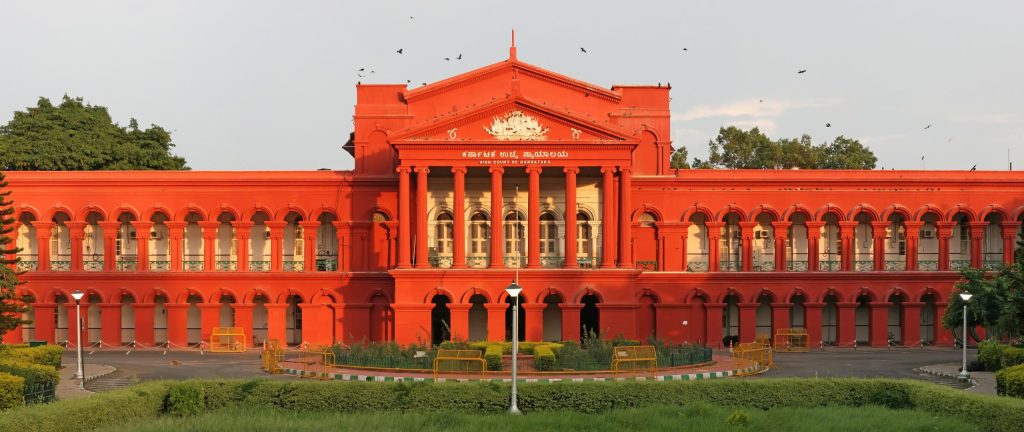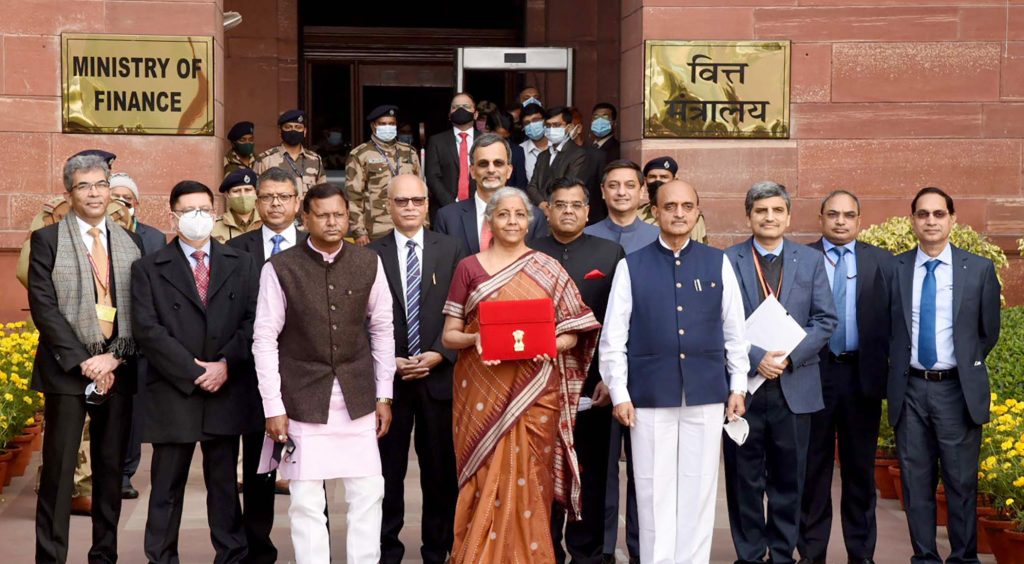Now Reading: Case Analysis: Right to Live with Dignity (Jeeja Ghosh v. Union of India)
-
01
Case Analysis: Right to Live with Dignity (Jeeja Ghosh v. Union of India)

Case Analysis: Right to Live with Dignity (Jeeja Ghosh v. Union of India)
Jeeja Ghosh & anr. v. Union of India & ors.
(2016) 7 SCC 761
Court: Hon’ble Supreme Court of India
Bench: Justice A.K. Sikri and Justice R.K. Agrawal
FACTS
The present Public Interest Litigation, spearheaded by Jeeja Ghosh, who is herself a disabled person, with the support of the NGO ADAPT (Able Disable All People Together), bears testimony to the statement of Shapiro. Irony is that though the aforesaid remarks were made by Shapiro way back in the year 1993 and notwithstanding the fact that there have been significant movements in recognising the rights of differently abled persons, much is yet to be achieved. India also has come out with various legislations and schemes for the upliftment of such differently abled persons, but lacunae between the laws and reality still remains. Even though human rights activists have made their best efforts to create awareness that people with disabilities have also right to enjoy their life and spend the same not only with the sense of fulfilment but also to make them contribute to the growth of the society, yet the mind-set of large section of the people who claim themselves to be ‘able’ persons still needs to be changed regarding their attitude towards differently abled persons. It is this mind-set of the other class which is still preventing, in a great measure, differently abled persons from enjoying their human rights which are otherwise recognised in their favour.
Jeeja Ghosh was born with cerebral palsy, a condition caused by lack of oxygen to the brain either during pregnancy or at the time of delivery. Ghosh has been involved in the social sector for more than two decades. She believes in the right based approach and dignity of all human beings. She has been a part of the disabled people’s movement and is connected to other disability right activities across India.
The present case is in regard to certain events happened during a flight journey from Kolkata to Goa. The 2nd Petitioner purchased a return flight ticket for Ms. Jeeja Ghosh from the Respondent No. 3, Spice Jet Ltd. During the journey, Jeeja was approached by a crew member of the flight and was asked to see her boarding pass. The crew member basically feared that her disability might pose health risk during pregnancy or during the time of delivery. She was ordered to get off the plane, even after she informed the flight crew members that she needed to reach Goa for the conference and it was important.
She was de-boarded. After arguing with the airlines and their authorities. Later she discovered that the Captain had insisted that she be removed due to her disability and will be threat. After this incident, Ms. Jeeja went into shock and trauma because of the event. She had trouble sleeping and eating properly, as a result she was taken to a doctor where she was prescribed medication. Due to the above incidents she was unable to fly to Goa on 20th February and thus missed the conference all together. It did humiliate and traumatize her but also to the organizers and to all the attendee of the opportunity to hear her and her experiences and her analysis of Indo- German under review.
Petitioner No. 1 grudges that even after 4 years of this incident whenever she has a flashback, she feels haunted with that particular scene where she was pulled out of the plane like a criminal. She still have nightmares and traumas because of the incident.
The Respondent in regard to the incident has sent an apology letter to Jeeja for trivializing the incident by just mentioning that ‘inconvenience caused’ was ‘in advent’. Before approaching the court, the Petitioner has also submitted the complaint to the Chief Commissioner for Persons with Disabilities and to the Ministry of Social Justice.
The Petitioner has filed a Writ Petition under Article 32 of the Constitution of India. She claimed in her Petition that airlines crew members’ behaviour was outrageous as it is both illegal and discriminatory. She also claimed that third Respondent’s staff clearly violated Civil Aviation Requirements 2008 with regard to ‘Carriage by Air of Persons with Disability and/or Persons with Reduced Mobility’ issued by the Respondent No.2 Directorate General of Civil Aviation as authorized by Rule 133A of the Aircraft Rules, 1937.
ISSUES
1. Whether there was a violation of Article 21 of the Constitution of India?
2. Whether the Respondent is liable under the provisions of CAR, 2008 and the PWD Act, 1995?
ARGUMENTS
Petitioners:
1. It was stated that there is clear violation of Fundamental Rights of the petitioner. There is a violation of Article 21 of the Constitution of India which provides for Right to Life and Personal Liberty and also Articles 19 (1) (d) and 19 (1) (g) which provides to move freely throughout the territory of India and to practice any profession, or to carry on any occupation, trade or business.
2. The Petitioners refused the contentions stating there was procedural negligence on the part of Ms. Ghosh.
3. Spice Jet Airlines’ denial of carrying her was in violation of the provisions of CAR 2008 and the PWD Act and UNCRPD.
4. The Court should order the Spice Jet authorities, their men, agents and persons acting on their behalf to adequately compensate the Petitioners for lost money, wasted time, and the humiliation and trauma suffered during the above mentioned incident.
5. It is humbly stated that it is the obligation of the government to see that rights of persons with disabilities are being taken care of and promote equality otherwise arbitrary practices against them is a violation of Fundamental Rights mentioned under Articles 14, 19 and 21 of the Constitution of India.
6. It was also stated that the all airlines shall incorporate appropriate provisions in the online form for booking tickets so that all the required facilities are made available to the passengers with disabilities at the time of check-in.
Respondent:
1. Respondent No. 2 DGCA stated, It was rather unusual, that a Governmental body itself came out in support of the present petition, so far it helps in implementation of the guidelines prescribed.
2. Respondent No. 3 Spice Jet claimed, it was Ms. Jeeja Ghosh who failed to disclose her disability at the time of booking of her flight ticket and at the time of check-in and the Respondent could not risk taking the Appellant for a 5 hour journey.
3. Spice Jet Airlines also stated, medical clearance was required and as per the medical literacy, cerebral palsy affects body movement, muscle control, muscle coordination, muscle tone, reflex, posture and balance. It can also impact fine motor skills, gross motor skills and oral motor functioning. Therefore, Jeeja Ghosh could have faced grave consequences during the long air journey which would have been a serious issue.
JUDGMENT AND REASONS FOR JUDGMENT
After considering the respective arguments of the counsel for both the parties and going through the relevant provisions and CAR, 2008 we arrive at the conclusion that Jeeja Ghosh was not given appropriate, fair and reasonable treatment which she was required by due sensitivity and the decision to de-board her in the given circumstances was an example of total lack of sensitivity.
Jeeja Ghosh is a disabled person who suffers from cerebral palsy. Her condition was not such which required any assistive devices or aids. She had demanded assistance regarding her baggage at the time of security check-in, from the check-in counter. She boarded the flight without anyone’s help. This was noticed not only by the persons at the check-in counter but also by security personnel who frisked her and the attendant who assisted her in carrying her baggage up to the aircraft. Even if we assume that there was some blood or froth that was noticed to be oozing out from the sides of her mouth when she was seated in the aircraft (though vehemently denied by her), nobody even cared to interact with her and asked her the reason for the same. No doctor was summoned to examine her condition. Abruptly and without any justification, the decision was taken to de-board her without ascertaining as to whether her condition was such which prevented her from flying. This clearly amounts to violation of Rule 133-A of Aircraft Rules, 1937 and the CAR, 2008 guidelines. However, now we should take it as a human rights considering various international laws. It is said that “Non-disabled Americans do not understand disabled ones.” The only error in the aforesaid sentence is that it is attributed to Americans only whereas the harsh reality is that this statement has universal application. The sentence should have read: “Non-disabled people do not understand disabled ones.”
It is the common experience of several persons with disabilities that they are unable to lead a full life due to societal barriers and discrimination faced by them in employment, access to public spaces, transportation etc. Persons with disability are most neglected not only in the society but also in the family. More often they are an object of pity. There are hardly any meaningful attempts to assimilate them in the mainstream. The indifference towards their problems is so pervasive that even the number of disabled persons existing in the country is not well documented.
It is also stated by the Hon’ble Court that these people don’t need sympathy but only want to be trusted. People don’t understand this fact that disabled persons also have some rights. Such people don’t want to be dependent on others. Non-disabled person always under- estimate the capabilities of the disabled person but these people want to be self-reliant. The Hon’ble Court also stated in the judgment that the Ms. Jeeja Ghosh is one of the examples of the spirit, courage of such disabled person. She has achieved so much in her life and has overcome her disabilities. Irrespective of her disabilities, she has become a responsible citizen of this country. A little care and sensitivity on the part of the airlines would not have resulted into such a pain, suffering and trauma that Ms. Ghosh has undergone.
The Hon’ble Court concluded the Judgment by saying to most of the disabled person, the society has closed the doors and the key to such doors has been thrown by non-disabled persons. Still some non-disabled person knock these doors or try to open these doors. Helen Keller has described this phenomena in the following words: “Some people see a closed door and turn away. Others see a closed door, try the knob and if it doesn’t open, they turn away. Still others see a closed door, try the knob and if it doesn’t work, they find a key and if the key doesn’t fit, they turn way. A rare few see a closed door, try the knob, if it doesn’t open and they find a key and if it doesn’t fit, they make one!” These rare persons we have to find out.
The Hon’ble Court found that the Respondent No. 3 acted in an insensitive manner and in the process violated the Aircraft rules of 1937 and CAR, 2008 which was also experienced by Ms. Ghosh. It was an unreasonable discrimination against her. The Hon’ble Supreme Court awarded Rs.10, 00, 000 as damages which were supposed to be paid by Respondent No. 3 within a period of 2 month from the date of judgment.









